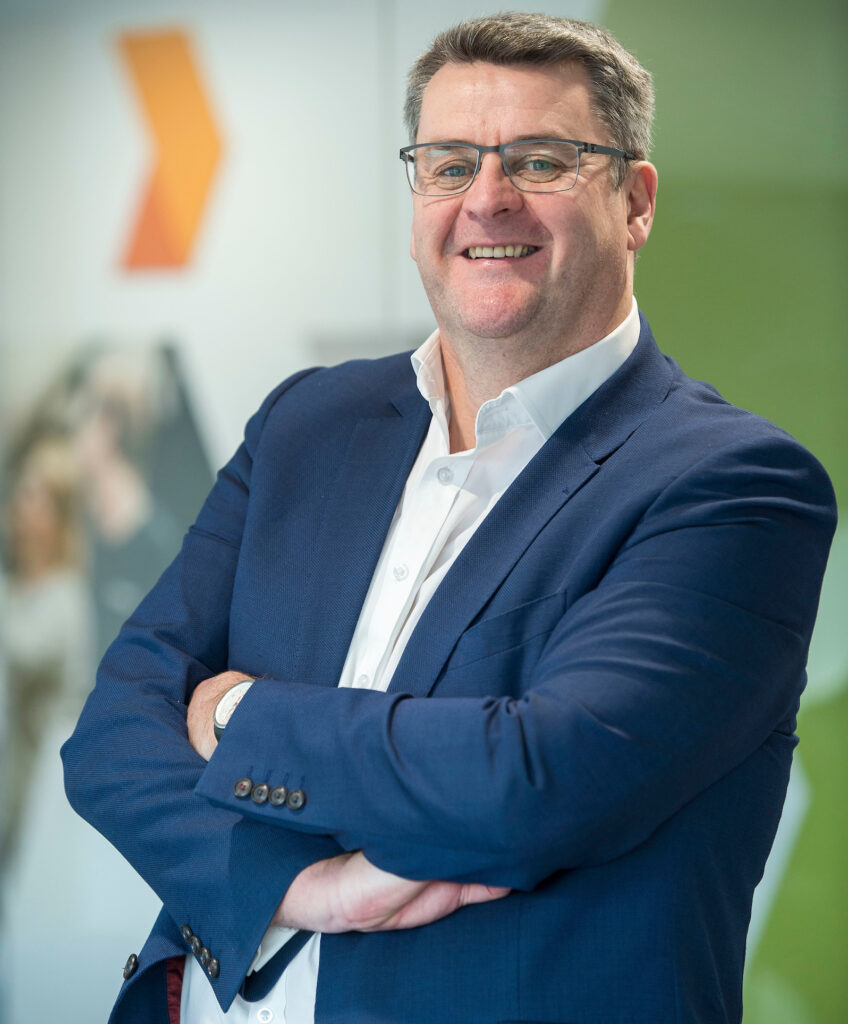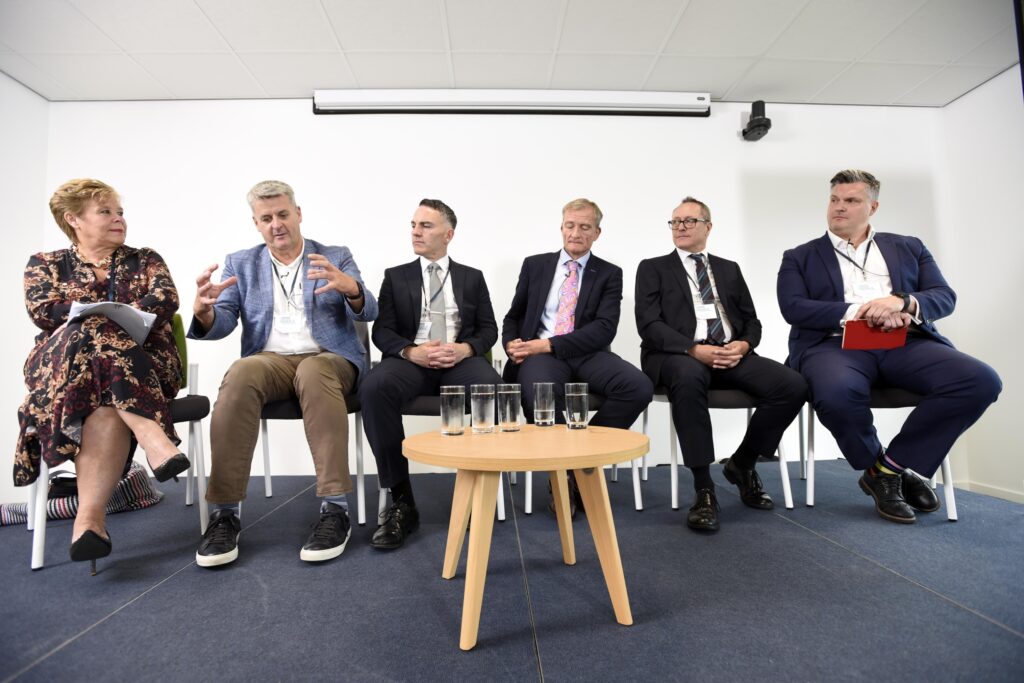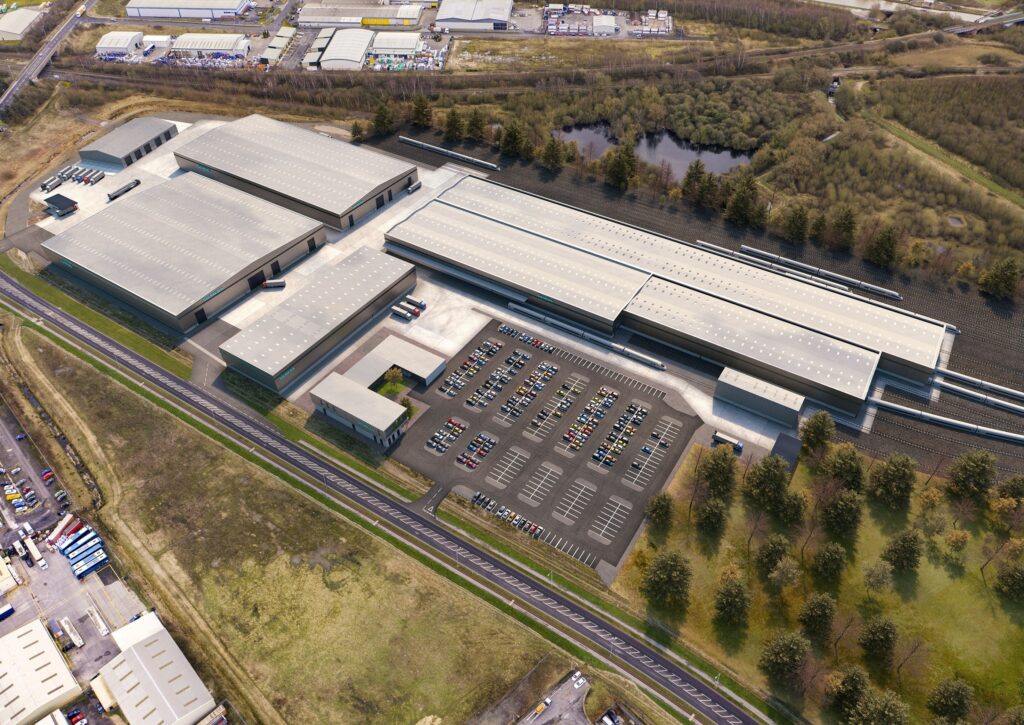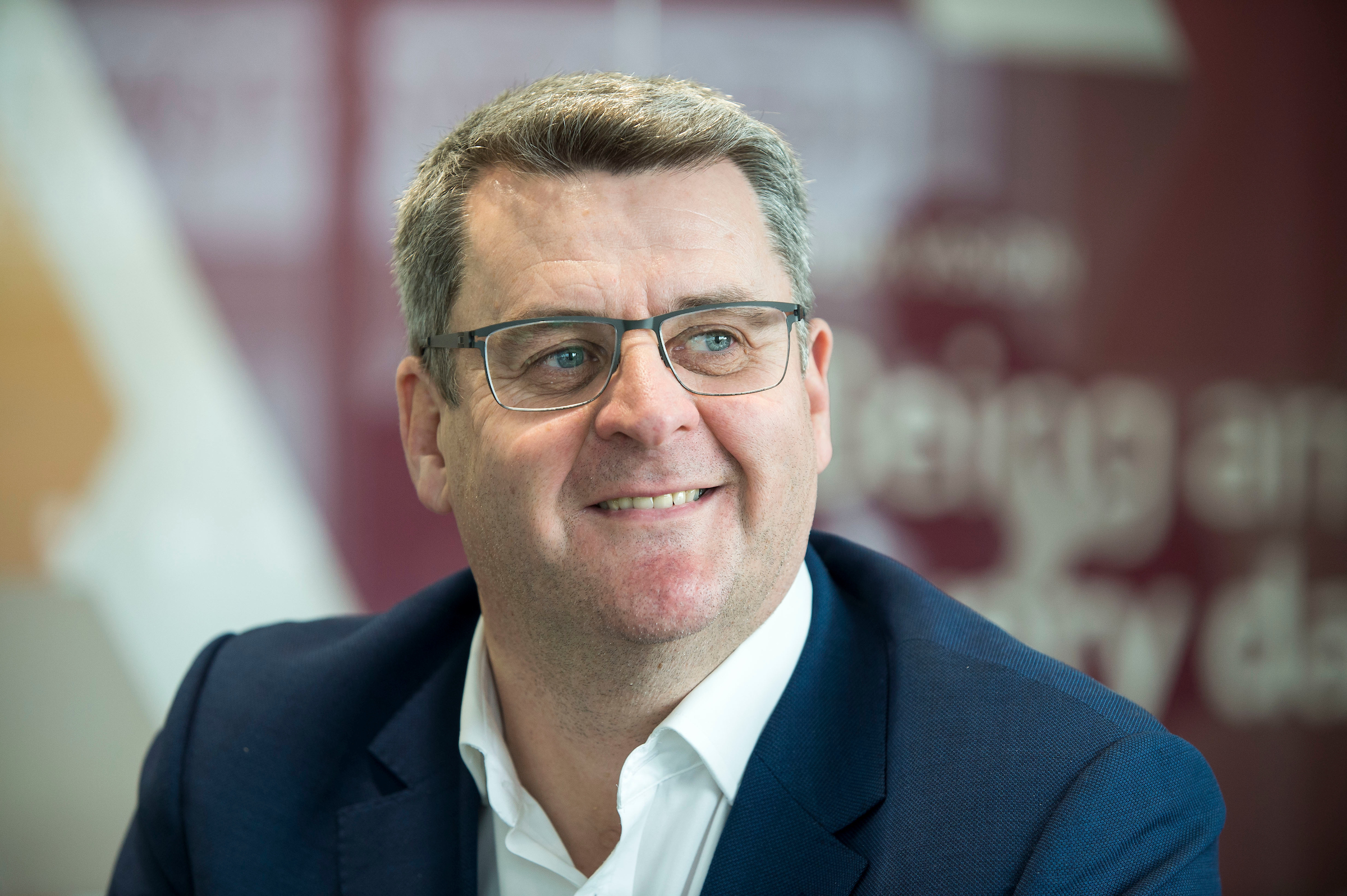When freeports were established in the UK, the Humber was identified as the region with the most powerful proposition.
One year on from the launch of Humber Freeport, well over £1bn of inward investment has already been pledged across its tax sites, including in Goole.
Finbarr Dowling, Project Director for Siemens Mobility’s Rail Village in the East Yorkshire town, reflects on a successful first year of Humber Freeport.

Finbarr Dowling, Project Director for Siemens Mobility’s Rail Village in Goole.
-
Why is freeport status important for the Humber?
When you break it down, freeport status is good for the Humber because it helps attract large inward investments.
It enables you to take a specific area of land, designate it as a freeport site, and within that area you can develop a broad skills cluster with a clear focus.
Green Port Hull is a perfect model of what can be achieved when you have that cluster. Siemens Gamesa and ABP have invested a combined £500m in Hull, and that has sparked further major investment in offshore wind and green energy.
If freeport status can nurture a Green Port 2.0, then you start to see really exciting things happening around innovation and skills growth.
-
What role does it play in supporting investment within the region?
Freeport status brings some fairly obvious benefits for investors looking at a region.
Freeport tax sites are, essentially, investment zones which offer businesses a series of tax breaks and reliefs, contributions towards Employer National Insurance and a supportive local planning environment.
Businesses importing and exporting products through freeport customs zones also receive tariff benefits. When you consider the Humber is the UK’s busiest ports complex, with more than 40,000 annual ship movements, that’s a serious proposition.

Finbarr Dowling recently spoke at the Invest in Goole Business Breakfast event, hosted by Insider Media.
-
How has freeport status benefitted your business?
It’s important to say that Siemens Mobility’s Rail Village does not sit within the Goole freeport tax site.
Siemens is, however, deeply imbedded into the Goole community. Once the rail factory is fully operational, we’ll be employing around 700 people in the town, and our social values programme is supporting a range of good local causes.
We’re also supporting the broader infrastructure improvements which are happening in Goole – whether that’s education provision, housing stock, transport connectivity or hospitality.
What’s good for Goole is good for Siemens, and freeport status will undoubtedly drive fresh investment and economic growth in the town.
-
What benefits do major investments bring in terms of skills and innovation?
It’s important we view investment, skills and innovation as a collective, and not in isolation. There is a huge opportunity in the Humber for industry to collaborate more extensively with academia, whether that’s universities or colleges.
If you want a case study of where this has worked brilliantly, look at the Advanced Manufacturing Park in South Yorkshire, and the Advanced Manufacturing Research Centre which has seen some outstanding work with the University of Sheffield and Rolls-Royce.
When you have different sectors working together collaboratively, then you can see amazing things happen.

Siemens Mobility’s Rail Village in Goole, East Yorkshire.
-
Humber Freeport has aligned itself closely to the decarbonisation of industry – what is the scale of the opportunity for the region as a leader in green energy and renewable technologies?
I see three big opportunities for the Humber in the decarbonisation sector.
The first is carbon capture and storage. What Drax is pushing ahead with could be transformational for the region, and unlock so many opportunities for businesses right across the supply chain.
Secondly, we’re making big strides forwards in hydrogen. While we’re a little way off deploying hydrogen as a broad provision, we will reach a stage where it is a commercial solution in the market. When that happens, the Humber is ideally placed to capitalise.
Finally, I think we will see big growth in battery storage. We can capture the surplus energy we produce from offshore wind, store it in batteries, and then use that energy to power things like data centres which currently produce huge levels of carbon.
-
To what extent do you feel Freeport status has acted as a catalyst in bringing forward or reinforcing other initiatives within the Humber?
When you look at freeports, you really need to look at the wider social picture, and the impact they can have on everything from skills and infrastructure to education.
The freeport that gets all of that right – and can offer investors a complete package – will be the one that is the most successful.
We’re lucky in our region to have brilliant investment teams working within local authorities. At Siemens, we have worked closely with the teams at both Hull City Council and East Riding of Yorkshire Council, and they have both been first-class.
What we need to look at now, and freeport can play a part in this, is ensuring investment sites offer a truly “plug and play” solution for investors. That includes making sure sites have a ready-to-go grid connection, and even meet the criteria required for biodiversity net gain.


